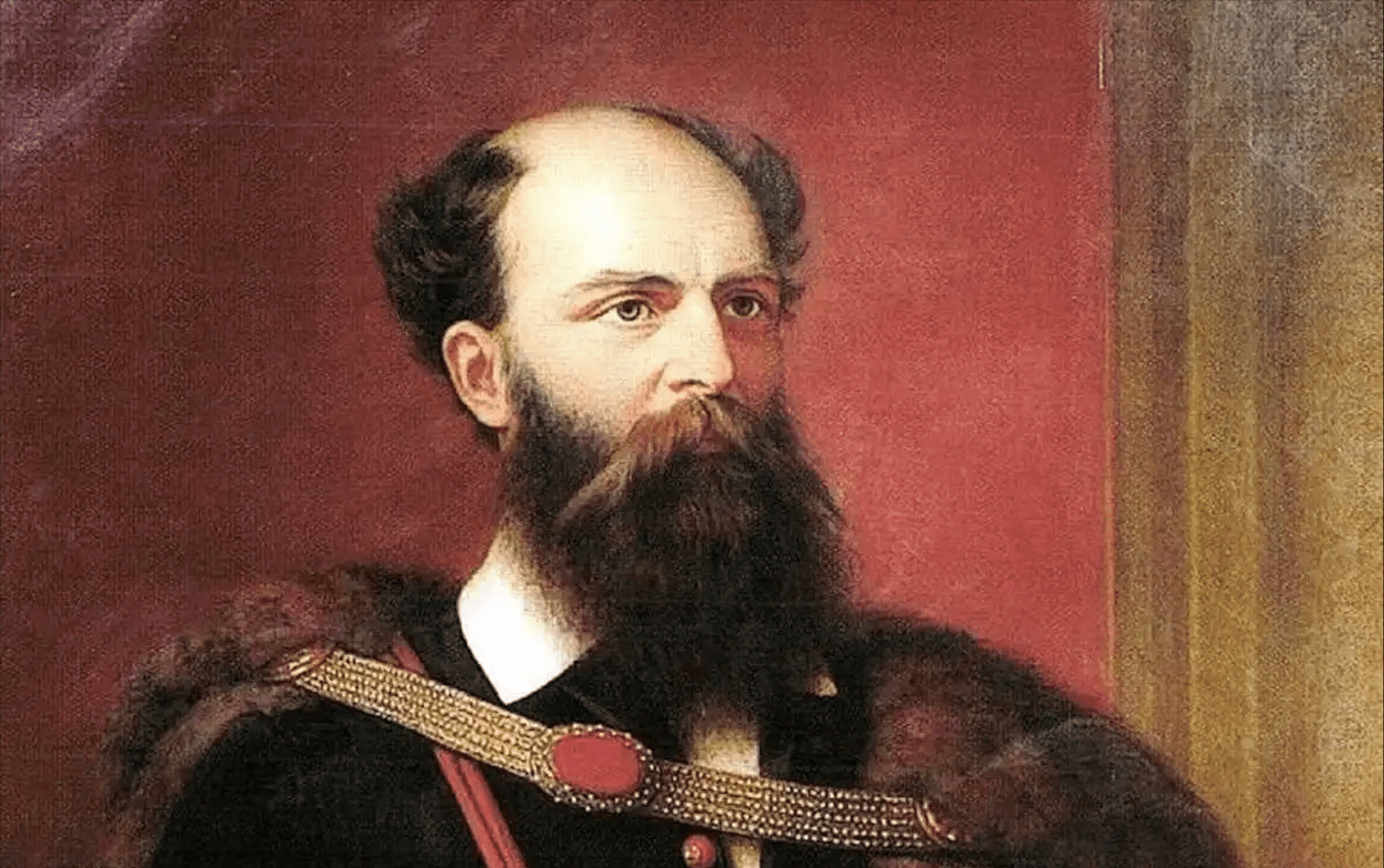Hungarian Conservative is published by the Batthyány Lajos Foundation, named after Count Lajos Batthyány de Németújvár (10 February 1807 – 6 October 1849), who was the first Prime Minister of Hungary.
Count Lajos Batthyány de Németújvár was born on 10 February 1807. He started to attend the Hungarian Diets (Parliament) at the age of 23 in 1830. His political talent and commitment to reforming the country became apparent very early on in his career. In 1839 he became the leader of the opposition in the Upper Chamber of the Diet, demanding reforms from the Habsburg establishment. He spent the next ten years unifying the opposition, trying to settle debates and disagreements, to pull together all who wished to see reforms in Hungary. In his speeches at the Diets, he outlined his reform program which aimed to modernise the country both politically and economically. His efforts to unify the political opposition were proven to be fruitful – in 1847 the Opposition Party was established, under his chairmanship.
Together with Széchenyi he pursued the restructuring of the Hungarian feudal economy by inducing industrial economic growth and transitioning to a capitalist free market
A proud aristocrat, he strongly opposed the oppression of absolutism. Albeit loyal to death to the king, he was also a great believer in constitutional rule and constraints on the monarch. Much like István Széchenyi, Hungary’s conservative stateman, Batthyány believed in the aristocracy’s responsibility to take a lead and modernise the country. Together with Széchenyi he pursued the restructuring of the Hungarian feudal economy by inducing industrial economic growth and transitioning to a capitalist free market. His political vision was to establish a constitutional monarchy with an active civil society, on the solid foundation of traditional values.[1]
In March 1848, he was part of the delegation dispatched to Vienna to pass on the Diet’s demands to the monarch. While the delegation was negotiating with Vienna, the Revolution broke out in Budapest. Two days later, on 17 March 1848, Ferdinand V accepted all the demands of the delegation and appointed Batthyány to be the first Prime Minister of Hungary. Batthyány’s cabinet included the most notable contemporary politicians and statemen – from István Széchenyi to Ferenc Deák. The most important goals of the cabinet were consolidating constitutional governance and setting up an independent Hungarian army. Despite the difficulties and Vienna’s obvious disapproval of these plans, Batthyány managed to lay down the foundations of an independent Hungarian army. In addition, he also started to modernise the Hungarian economy by eliminating feudal taxation.
Afraid of the changes occurring in Hungary, Ferdinand V planned to send imperial troops into the country. On 11 September 1848, units entered Hungary from Croatia, trying to do away with the achievements of the 15 March Revolution. Although Batthyány’s cabinet attempted to resolve the conflict through peaceful negotiations with Vienna, their efforts were ultimately unsuccessful. A couple of weeks later, the monarch invalidated the Batthyány cabinet’s mandate, and with that measure, the Freedom Fight became inevitable. As Batthyány failed to avoid war, he resigned from his position as Prime Minister on 2 October 1848. Instead, he joined the freedom fighters as a Hussar to physically battle for Hungary’s constitutionalism. He was injured within a month; after his recovery, he re-joined political life and became a parliamentary representative. He was captured by imperial troops on 8 January 1849. He was not be released ever again – he was executed six months later, following an unlawful show trial.
At the spot of his execution–just a couple of minutes’ walk from the Hungarian parliament–now burns an eternal flame in memory of his sacrifice
To escape the humiliating death of hanging, he attempted suicide by trying to cut his throat. Although his suicide attempt was unsuccessful, he could not be executed by hanging due to his severe neck injury. As a result, his execution was carried out by a firing squad on 6 October 1849. He did not allow his eyes to be covered – he kneeled down, faced his executioners and shouted ‘Allez Jӓger! (Go ahead, Hunters!), Long live the Motherland!’ as he was shot.[2] At the spot of his execution–just a couple of minutes’ walk from the Hungarian parliament–now burns an eternal flame in memory of his sacrifice. He was not rehabilitated after the 1867 Compromise – the Habsburgs never forgave him for his commitment to reforming the country.[3]
The Count’s motto, ‘Viam meam persecutus sum,’ that is ‘I pursued my way that’s why they are killing me,’ as well as his bravery are unforgettable. He unquestionably believed in pursuing the interest of the Hungarian nation, working on creating a better future for the next generation of Hungarians. He believed in constitutionalism and in a strong and vibrant civil society, which thrives on Hungary’s traditions. In the 1990s, when Hungary was democratised, upon the initiative of Prime Minister József Antall, the foundation that publishes Hungarian Conservative was set up, named after Lajos Batthyány, to foster Hungarian political traditions, patriotism and to serve as a platform for intellectual political discourse. We work to honour the memory of our spiritual father, Count Lajos Batthyány de Németújvár.
[1] Gábor Kiss, ‘Viam meam persequor’ Pannon Tükör, 2007, p. 87.
[2] Tamás Elter, Bosszúból, a császárt is kijátszva végezték ki Batthyány Lajos grófot,’ Origo.hu, 2020, https://www.origo.hu/tudomany/20201006-az-udvari-kamarilla-koholt-vadak-alapjan-puccsszeruen-vegeztette-ki-batthyany-lajost.html, accessed 4 March 2022.
[3] Kiss, ‘Viam meam persequor,’ p. 86.








